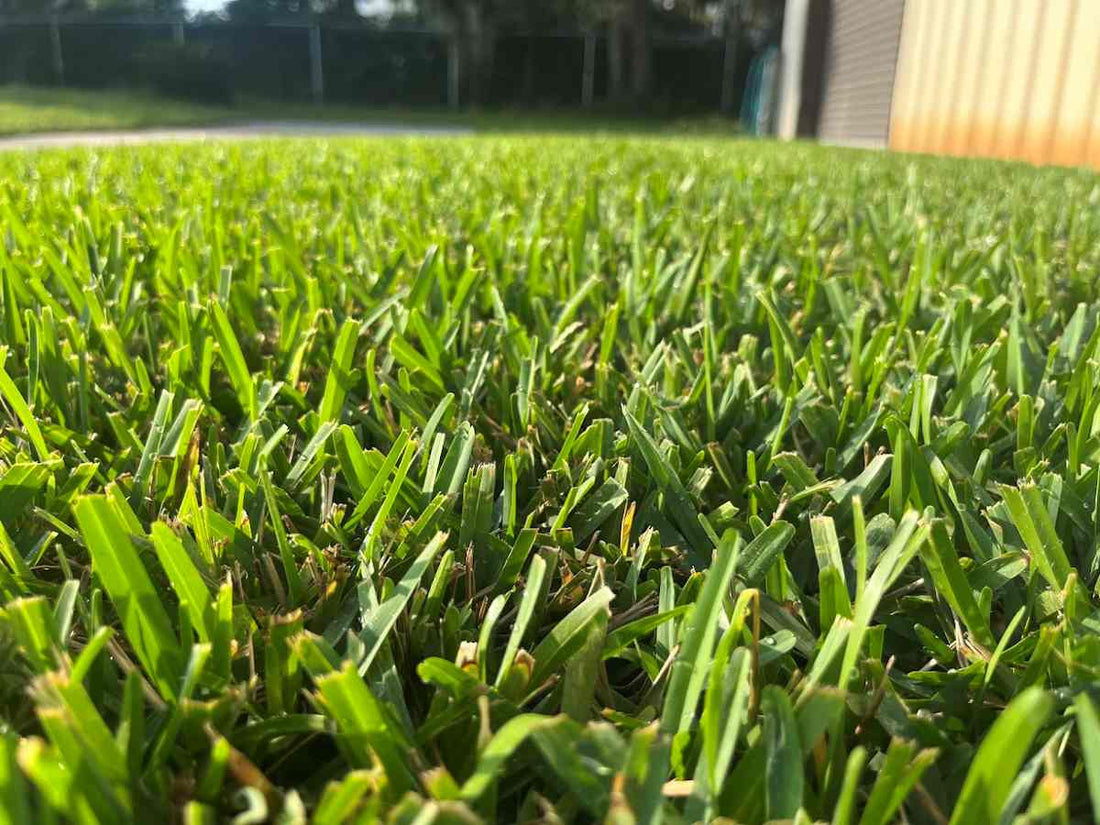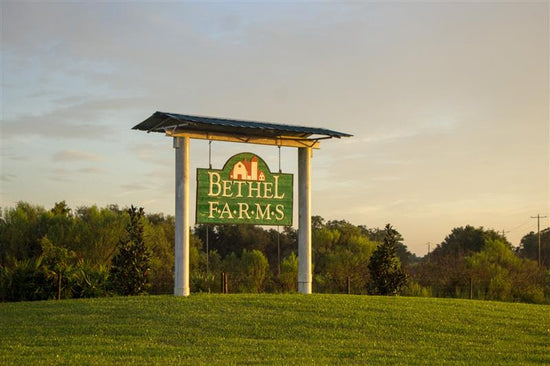
How Viridian St. Augustine Changes Lawn Care
Jamie TedderToday’s homeowners face new challenges in maintaining a healthy, good-looking lawn. Across many regions, water restrictions are becoming more common—limiting irrigation to specific days and times—and weather patterns can shift quickly, affecting lawn health. Add to that the rising costs of maintenance, stricter regulations on fertilizer and pesticide use, and a growing interest in low-maintenance landscaping, and it’s easy to see why traditional turfgrass varieties often fall short. Homeowners require more innovative solutions that can adapt to these modern demands.
Enter a new generation of turfgrass—new elite varieties developed through years of intensive research and field testing to adapt and thrive in today’s world. Among them is Viridian St. Augustine. Cultivated with the needs of modern homeowners and landscapers in mind, Viridian represents a smarter, more sustainable approach to lawn care—particularly for Florida homeowners dealing with a humid and often drought-prone climate.
Why Today’s Lawns Need a Smarter Grass
Across the country, environmental pressures are leading homeowners and landscape professionals to not only rethink their choice of turfgrass but, in some cases, even question whether maintaining a lawn is worth the effort. One primary concern driving this shift is water usage.
Water Restrictions Make Drought Tolerance Essential
In Southwest Florida, year-round water conservation measures limit lawn watering to no more than twice per week, typically before 10 am or after 4 pm. These rules apply across multiple counties and cities within the Southwest Florida Water Management District—unless stricter local ordinances are in place. With ongoing dry conditions, water conservation remains a priority, making drought-tolerant grass varieties a more practical and resilient option for maintaining a healthy lawn within current watering guidelines.
More Challenges, Fewer Inputs
Rising temperatures and unpredictable weather are placing new demands on lawns. While traditional turfgrasses, such as older St. Augustine varieties, have long been favored, today's homeowners have more options than ever. Newer grass varieties are being developed with improved tolerance to heat, pests, and disease, offering choices that are better suited to your specific climate, soil conditions, and maintenance preferences. Combined with increased regulations on synthetic fertilizers and pesticides due to concerns about runoff, the shift toward more sustainable, resilient lawns is both practical and necessary.
Traditional Grass, Modern Demands
Traditional St. Augustine grasses, like Floratam, are valued for their dense coverage and vibrant color. However, they can require more hands-on care—such as frequent mowing, regular fertilization, and proactive pest and weed management—especially in challenging conditions like heavy shade or areas prone to pests like chinch bugs. While still a widely used variety, you may find that newer cultivars better align with today’s preferences for lower maintenance and greater adaptability.

Breeding a Better Turf: How Modern Varieties Are Developed
New grass varieties like Viridian are the result of years of selective breeding and rigorous testing, made possible through partnerships between academic research institutions and turf growers. The Texas A&M turfgrass breeding program, working with ScottsMiracle-Gro, developed Viridian to improve turfgrass performance across several critical dimensions. The benefits of this advanced turfgrass cultivar include:
-
Improved drought tolerance – allows the grass to survive with less frequent watering
-
Resistance to common pests and diseases – reduces chemical input and lawn damage.
-
Slower vertical growth – reduces mowing frequency and overall lawn maintenance.
-
Shade tolerance – performs well in full sun or partial shade, offering more flexibility in landscape design.
-
Cold resilience – better adapts to Florida’s fluctuating temperatures, maintaining health through unexpected cold spells.
Viridian is a clear standout, integrating these advantages into a single, well-adapted St. Augustine variety built for the modern landscape.
Meet Viridian St. Augustine
Specifically engineered for performance in warm, humid climates like Florida’s, Viridian builds upon the foundation of traditional St. Augustine grass, improving upon its weaknesses while preserving its thick, carpet-like look. It offers a versatile solution, both for residential and commercial applications, that holds up under pressure.
Superior drought tolerance: Viridian performs well on just 1 inch of water per week after establishment. This makes it an ideal candidate for areas with frequent irrigation limits or seasonal droughts.
Exceptional shade tolerance: Unlike some St. Augustine types that require full sun, Viridian adapts well to partial shade, making it a good choice for homes with mature trees or shaded structures.
Cold resilience: While Florida is predominantly warm, unexpected cold snaps can harm typical warm-season grasses. Viridian is better equipped to handle occasional low temperatures, helping maintain lawn quality even during unpredictable winters.
Unmatched weed control: With its glyphosate tolerance and dense horizontal growth, Viridian naturally crowds out weeds and can tolerate a broader range of weed control products, offering homeowners more flexibility in managing lawn health.
Reduced mowing frequency: With its slow vertical growth, Viridian can require up to 50% fewer mowings than traditional varieties. This translates to savings in time, fuel, and wear-and-tear on lawn equipment.
Lush, deep green color: One of Viridian’s most visually appealing traits is its consistent dark green color, which remains vibrant under various environmental conditions.
Altogether, Viridian offers an upgraded experience tailored to Florida’s complex mix of humidity, heat, water restrictions, and seasonal changes.
Sustainability and Cost-Effectiveness
Beyond its adaptability, Viridian offers a more sustainable lawn care model. Because it needs less water and fewer mowings and is compatible with more targeted weed control methods, you can reduce your environmental footprint while maintaining a high-quality lawn. Fewer chemical inputs also mean less runoff into storm drains and waterways—an important consideration in today’s ecological challenges.
The combination of low maintenance and long-term durability makes Viridian an excellent choice for both residential homes and commercial properties seeking reliable turf that doesn't require intensive upkeep.

The Future of Lawn Care is Here
The turfgrass industry is evolving to meet the needs of a changing world. Varieties like Viridian prove that we no longer have to choose between beauty and resilience or sustainability and performance. These grasses represent a thoughtful response to environmental concerns, maintenance realities, and the ever-changing climate—offering innovative solutions to age-old lawn care problems.
Bethel Farms takes pride in being one of the few producers cultivating Viridian, helping to bring this advanced turfgrass option to Florida homeowners and landscapers who need a grass that works with the environment—not against it. Although Viridian St. Augustine is not a one-size-fits-all grass, it’s an optimized solution for warm, humid, and sometimes challenging climates like Florida’s. It offers a forward-thinking approach to lawn care, reducing maintenance burdens while maintaining aesthetic value.
Don’t settle for yesterday’s turf—choose a lawn ready for tomorrow. Explore innovative, climate-adapted sod options like Viridian St. Augustine at Bethel Farms and take the first step toward a smarter, more sustainable lawn.

